Thoughts
For 1.26.23
I don't like the look of this layout. I'll figure something better out. For the meantime, here are some ideas I have in mind for this course.
This also doesn't fit anyhere else, but I really like Hylics 1 + 2. I think the universe is very visally intriguing with it being made form claymation and ties to viserality. I also love the JRPG mechanic of the series, which also reminds me of the Final Fantasy 1 - 8, or the Shin Megami Tensei series. Aesthetically I like Jet Grind Radio and Pixel Junk Shooter. It's a good mix of both randomization and strategy. i like the idea of making nd designing one, but I don't know if I'd have the time within the timeline of the class. I didn't have a console growing up, so I mainly gravitate towards desktop games like neopets or poptropica.
For 2.2.23
Map making
Recently I've been thining abou how space exploration is closely related to colonist interests. I wanted to make an analagous comparison to the modernization of the West in the creation on mass produced indistry through the specificiality of plantation staples. At least in my own experiences the Caribbean is still seen as simple, disonterested with American hustle and thus an othering escape to the first world working and upper class. What I think to be the catalyst of "modernity," I think there's a lot of interactive, narrative potential to the idea of "innovative backwardness". These sketches are serving as a framework for an anthropologist's expedition to another planet, but in their further research into the planet, they lose touch and connection to the resource that would serve the greatest potential, the inhabitants and the people.
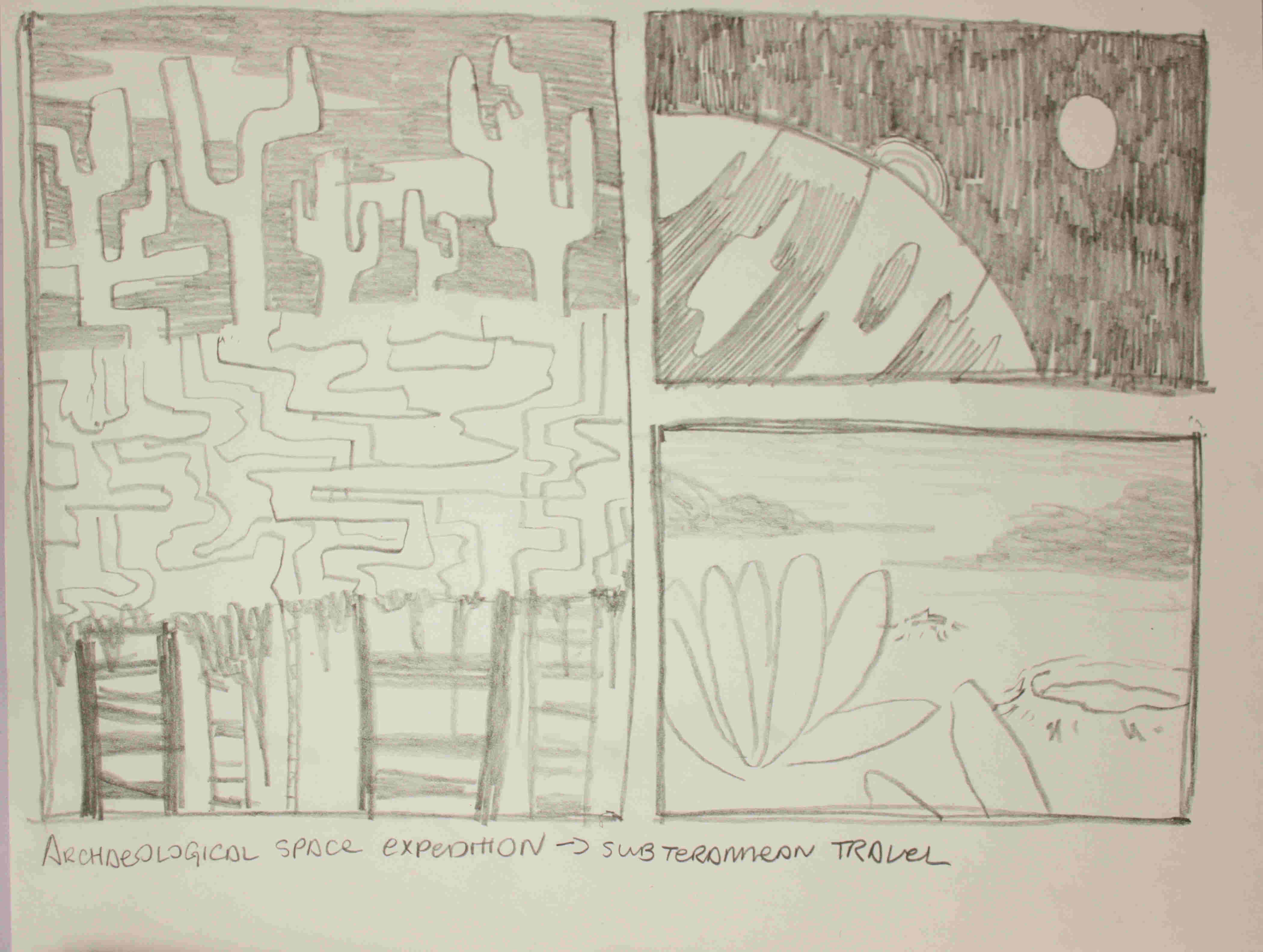
- Arrival on lush oasis
- Sequences of natural disasters
- Anthropologist becomes attached to planet or decides to venture other planet with similar resources
Chronology
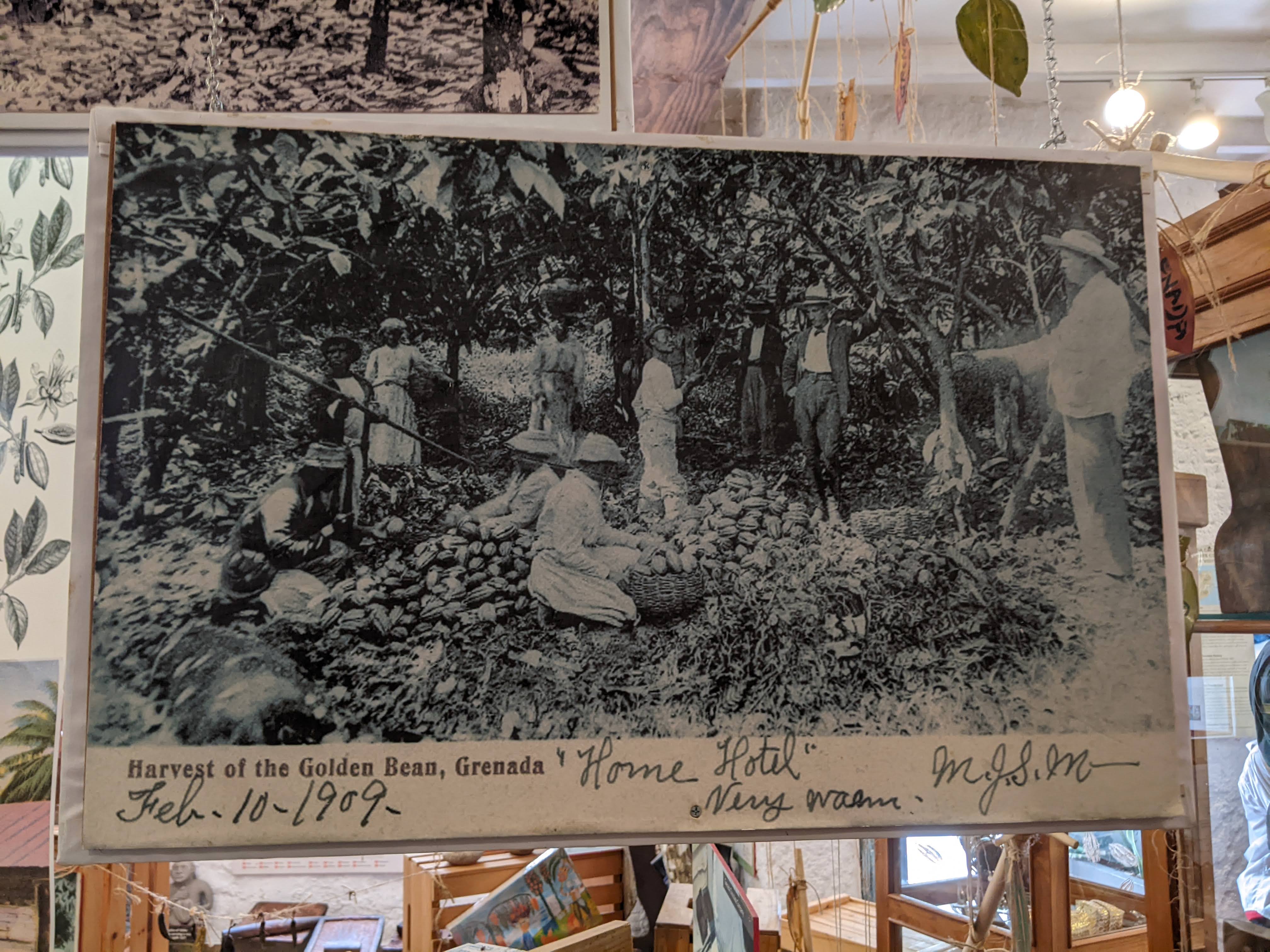
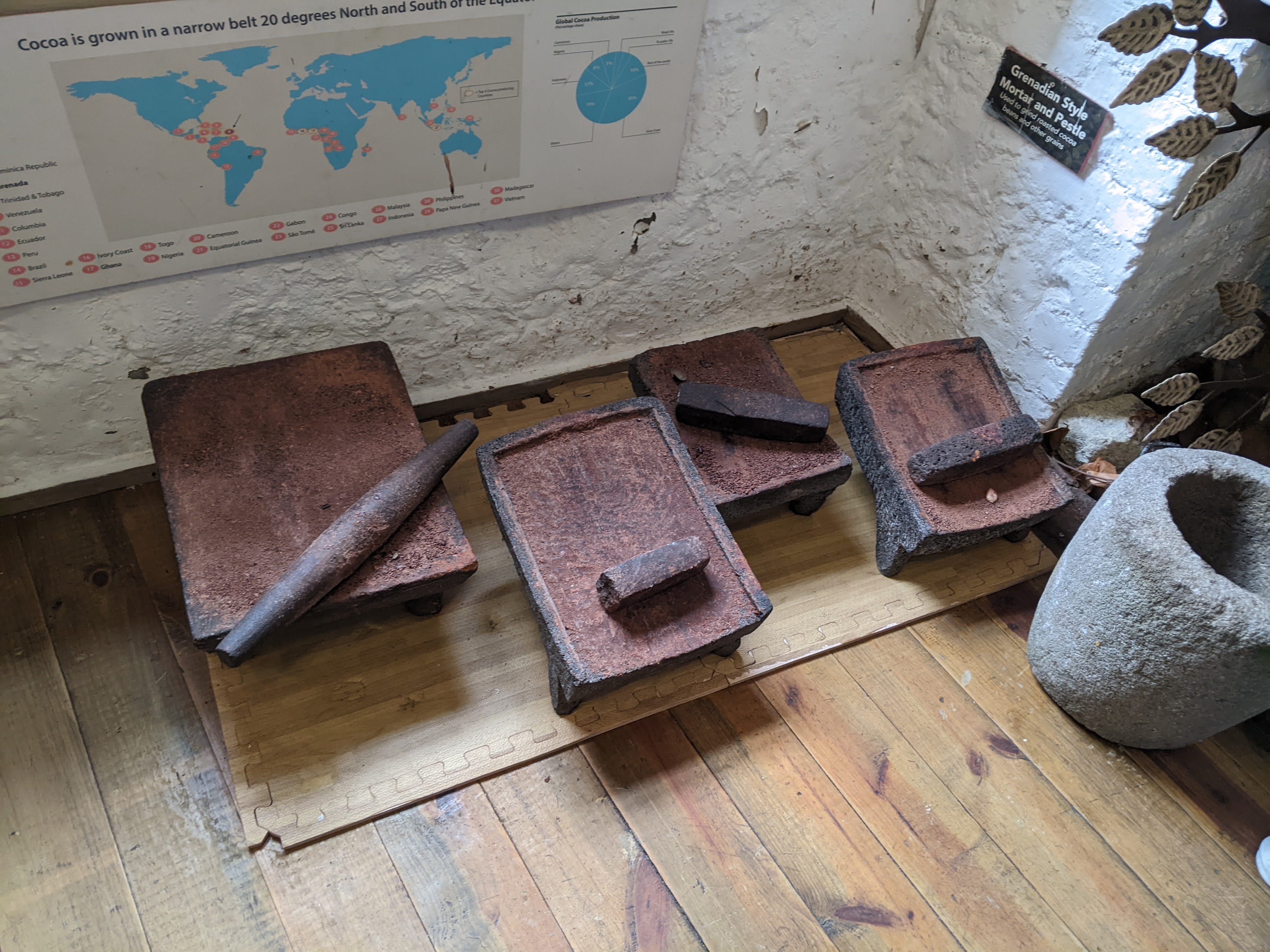
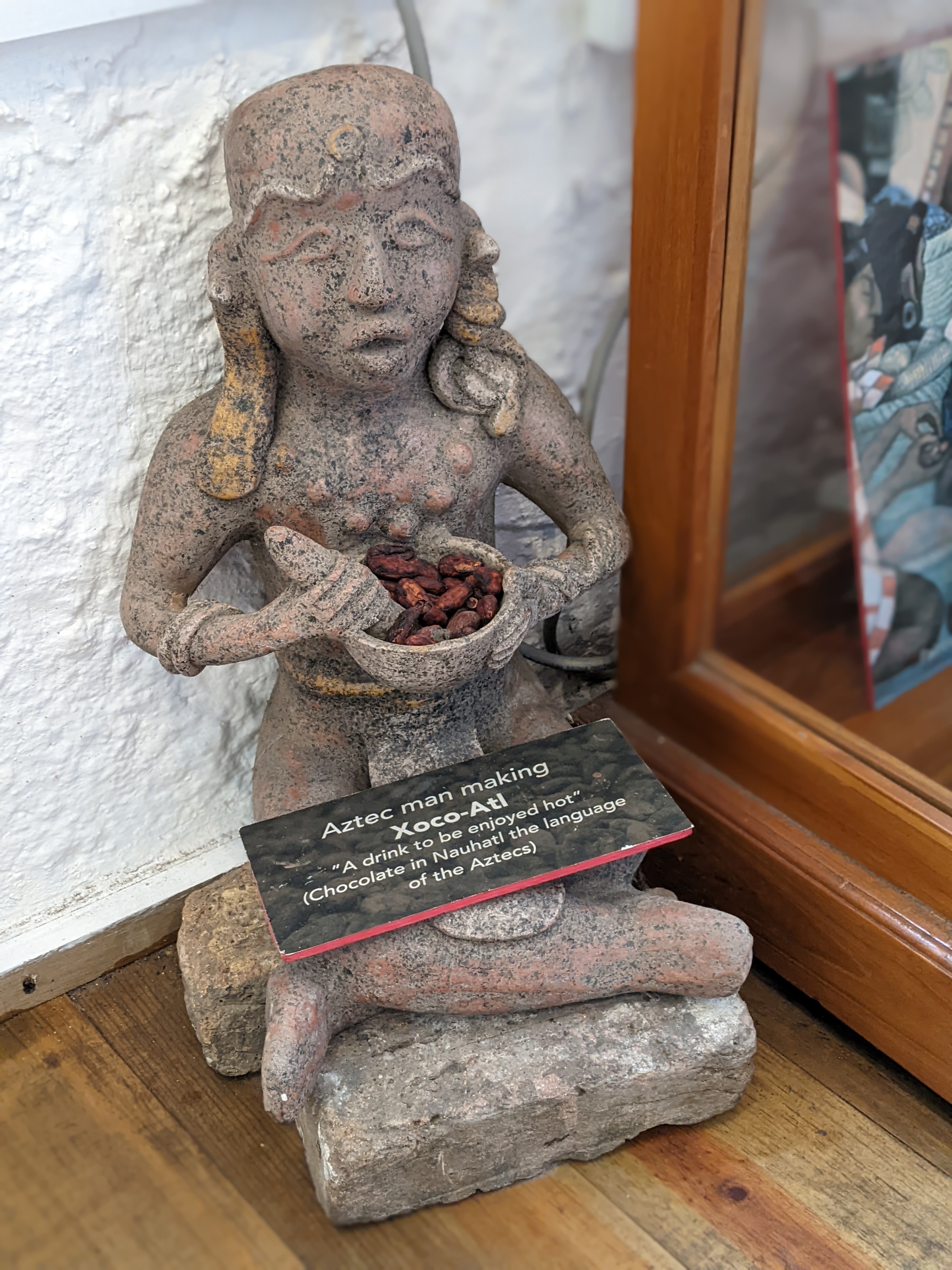
- Poptropica's "Astro Knights" Island
- Pixel Junk: Shooter
- Rougelike
- Deliver Us the Moon
Inspiration
For 2.9.23
Connections of alternate and lived reality intersect even before the age of computers were in now. Network Aesthetics: Chapter 5 explores alternate reality games and real life through social conditions. The book used party games and social interactions as a general example. As a conceptual example, however, I would like to look at Richard Connell's short story "The Most Dangerous Game," where esentially a skilled hunter becomes big-game for a wealthy aristocrat. Based on the games wealthy elites would embark on in African safaris, I also see this in a AGR sense. Where social hiearchies such as class exist to keep one facet of it at the top, the apex social predator has to dominate and exploit those at the bottom. This predator-prey relationship differs naturally and socially. Where one is about survival within a generation, the social is a manifestation of multiple occurences of the same exploit and becomes generational. This is a series of inputs and outputs that in the small scale becomes the macro.
For 2.16.23
I'm not sure if I want to do a 2D or 3D platformer. But I did some exploring in 2D.
I am also creating my assets. This will take on the JRPG 2D perspective (like the Disgaea series for example). The goal is to have a turn based RPG that functions like a rougelike. The player will have to mak options for the sacrifice of the inhabitants on the planet they visit, or for the sacrifice of themselves. their survival is dependent on the knowledge of the new planet.I'm not sure fot isometric or platdorm, but I think platform is more realistic for the goals of the class.
Resources
Notes
- When adding tiles that exist in the game, when selecting layer for "active tilemap in Tile Palette, choose scene to paint tiles.
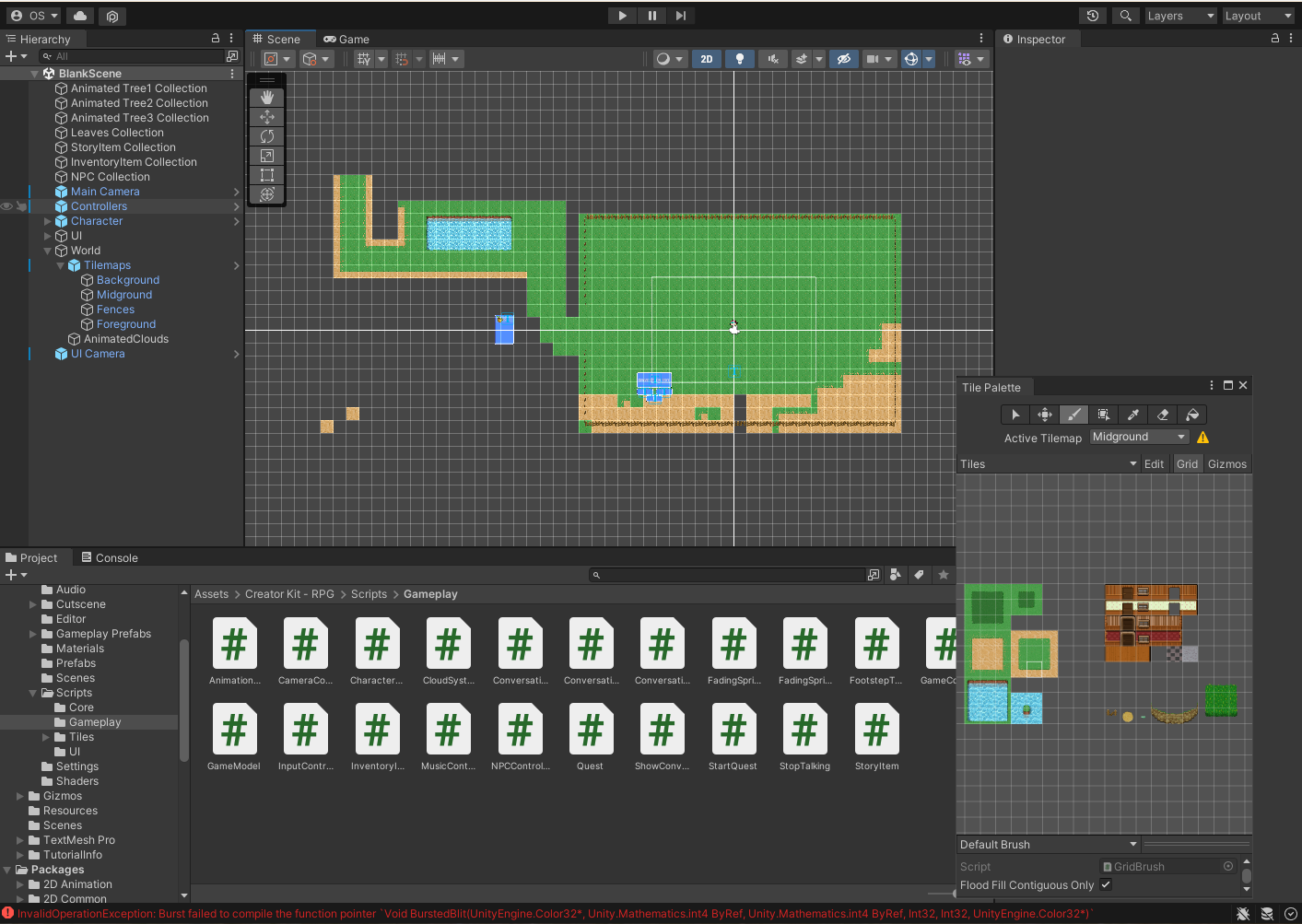
For 2.23.23
Note: I am working on my assets for my projects. I do not have anything to show for this week, but I have a list of items I hope to have started or semi-finalized for next week...- Tiles for planets (sea, above land, underground), in different
- Character sprites for playable characters and planet inhabitants
- Alien fruits
- Finalized storyboard (?) for game
The translation of feedback loop from biological processes to computing has a relationship in correlating the body to a machine. Turning the body into a vessel for labor, compatibility, to inevitable obsolescence. The idea I had for my game stems from an interest in the commodification of chocolate, and how often it heaves the people who harvest and cultivate it to be an after thought in a consumerist and exploitative industry. Realistically speaking, this broadly applies (IMO) to new world and global south fruits and plants, like madagascar vanilla / vanilla orchids, cacao, bananas, cane sugar... Beyond the scope of the assigned reading, /i correlate this to a consequence of tourism as a form of neocolonial class oppression. Following Jamaica's independence from the commonwealth, the british crown asserted the debt it has amassed from jamaican commodities into the newly independent island, imposing a state of perpetual debt and indenture to english exports and jamaica's predominantly foreign owned tourist attractions. For example, the common jamaican could work to grow bananas to sell, but tourists would be less inclined to buy from him directly, fut instead, from the produce agency he works for. Additionally, this pursuit for the island to stabilize itself independently also functions as collateral to intercept and prevent or stunt any uprisings or revolutions. To discenfranchise is to disarm. This lapse in overlooking the laborer's history in horticulture is something I want to incorperate in the potential choices the protagonist can choose in the game I'm making, where they face a dilemma of fufulling a classist interest, or in weighing the costs of exploiting the benevolence of the unsuspecting planet inhabitants. (awkward conclusion)
For 3.2.23
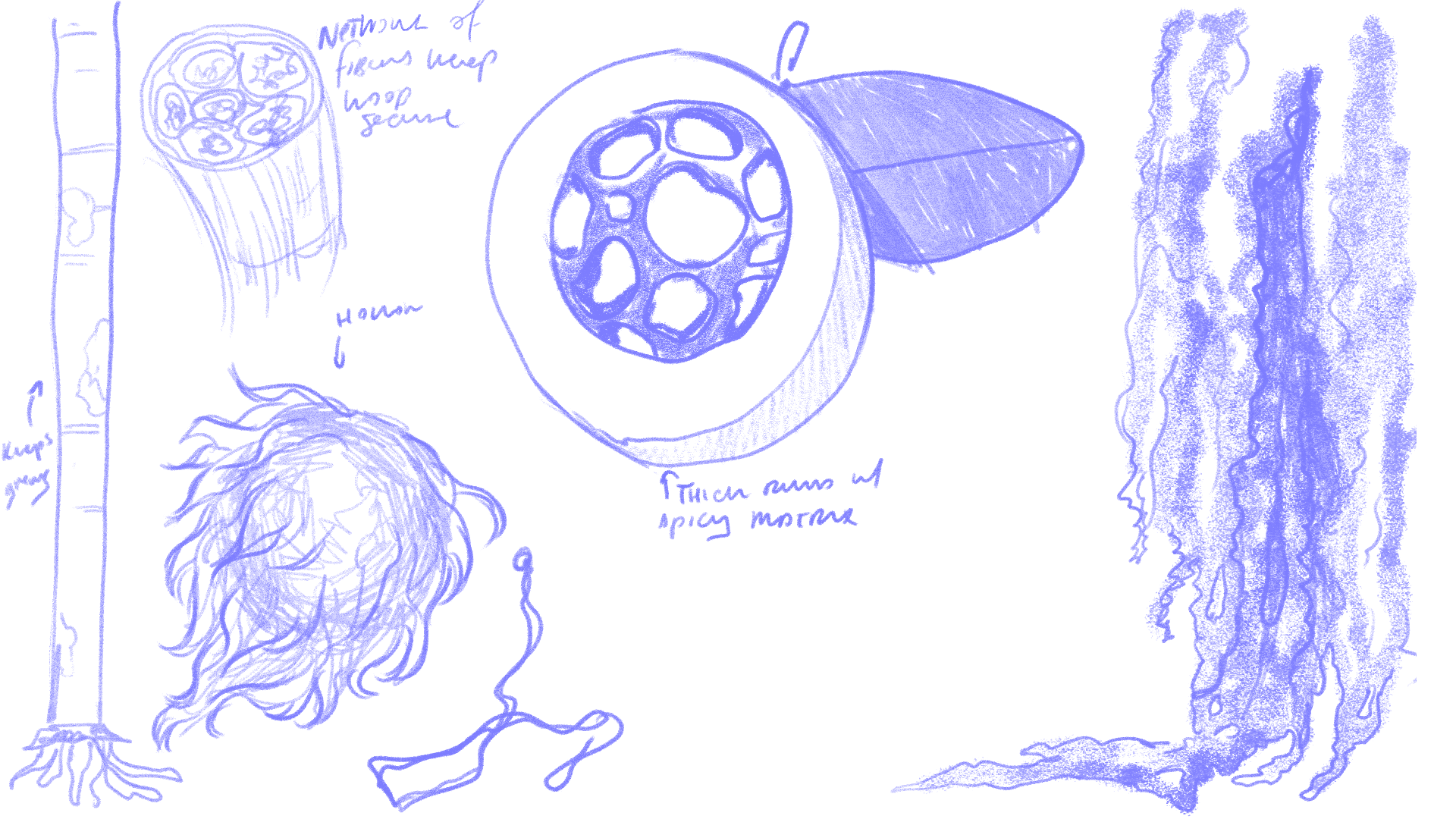 https://drive.google.com/file/d/12Gy3eAZ7NjK5CnBSRk4XnYaGYsVcPlJo/view
In Free Fall: A Thought Experiment on Vertical Perspective
https://drive.google.com/file/d/12Gy3eAZ7NjK5CnBSRk4XnYaGYsVcPlJo/view
In Free Fall: A Thought Experiment on Vertical Perspective
Whole societies around you may be falling just as you are. And it may actually feel like perfect stasis—as if history and time have ended and you can’t even remember that time ever moved forward. When I read this, it reminded me of Karl Marx's concept of ficticious capital, a cencept he wrote in the creation of credit as a economic concept. To me, this is how people will become reliant on a system with a false or ficticious currency or monetary reserve to sustain themselves. Credit does that well in the sense that loans are designed to generate interest. Banks and those who are on top of the capitalist structures are not going to benefit without some sort of exploitation. in the form of incurred " fees ". people use credit and loans to buy things such as furniture, maybe a new computer, but more so it's for housing and education, things that personally seem essential to me. and that way, our current economic system, at least in the United States, does not function without some sort of generative increase of the dollar. With that also comes the inflation of cost with the reduction of the dollar. There are a lot of generative financial considerations the working class need to be aware of as the ruling class wants to impliment these. I also feel this way about cryptocurrency, and especially the stock market. Intangible tangibles. A digital mediator between material possession, but still having the inflation issue with "real" currency. As for stocks, I remember a while back when Elon Musk made verification into a supscription into a granted token on the platform, some inpersonated an insulin company and declared it free to get. The patent for insulin was originally affordable or free (don't remember) in order to not have cost be a barrier for health. Because of this virtue, it was able ot be bought at a low cost to be sold at a high price. By the stock decreasing for the assumed affordability of insulin, it not only points ot how disproportionate the supply and demand cost principle in economics is, but points to how cost for necessities is manufactured. Back in 2020 when the pandemic hit New York City and the protests were occuring, when the people who could afford to leave left, and suddenly landlords who weren't live in or had multiple properties were losing excess income. Excess. That's why it's so devastating when the rent spiked post pandemic even when people did not return and business starting operating again. It is a reliance of creating scarity and pushing the threshold of necessity and cost that creates a life of "rentorship," where everything that can be usable is not secure.
For 3.9.23
Midterm; Xiatou Ends with You Presentation